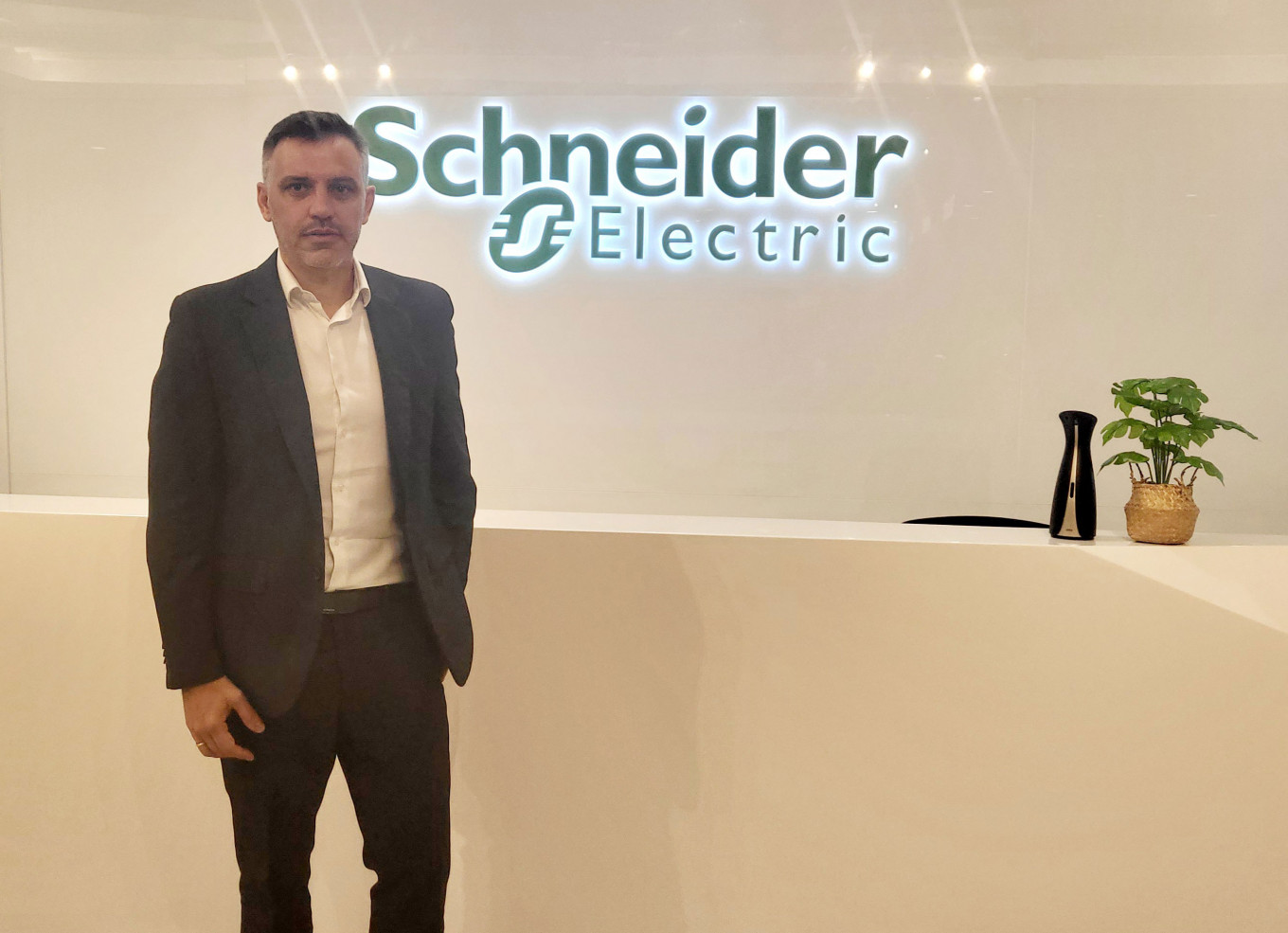Popular Reads
Top Results
Can't find what you're looking for?
View all search resultsPopular Reads
Top Results
Can't find what you're looking for?
View all search resultsSchneider Electric reaffirms commitment to Indonesia’s green transition
Change text size
Gift Premium Articles
to Anyone
F
or most people today, electricity is something that might seem omnipresent, powering everything from their air conditioners on a hot day to microwave ovens for heating up meals, and to the Wi-Fi router that keeps them connected to people and news.
In the push toward a greener future, wider electricity access as well as a more robust grid ecosystem will be vital to ensuring that Indonesians across the archipelago can do their part in the transition to clean energy and net zero emissions.
Schneider Electric’s Country President of Indonesia, Roberto Rossi, told The Jakarta Post in a recent interview that Indonesia was currently grappling with two main challenges: access to reliable energy and access to green energy.
“I think that the government has done a lot in the last 10 years, and it is feasible that the focus is to go for more,” Rossi said.
“For sure, to cover the 100 percent [of Indonesia] it will need innovative solutions, and this is where we can collaborate with Microgrid for middle-sized solutions, and Homaya and Mobiya through solar-based products for smaller requirements.”
At the same time, Rossi believed the government would need strategic partnerships to ensure access to green energy, as open and sustainable access to clean and adequate energy was vital to accelerating the transition.
Even so, the energy sector is responsible for 85 percent of global carbon emissions. In Indonesia, state-owned electricity company PLN stated in 2021 that the electricity sector accounted for 14 percent of the country’s carbon emissions, though it also noted that the figure was among the lowest in ASEAN countries.
In light of the data, the government has recently revised its emissions reduction target upwards from 29 percent to 31.89 percent by 2030, setting the tone for its ambitious decarbonization goal across industries.
According to Rossi, Indonesia will need to carry out concurrent strategies to accelerate decarbonization in the electricity sector, such as Electricity 4.0, which combines digital technology and green electricity as the fastest route toward net zero emissions.
“The electricity sector needs to transform to be smarter, including in its distribution. A smart grid is critical to ensuring an efficient, resilient and reliable energy supply for the future,” he said.
“Schneider Electric has the solutions to support grid transformation, including EcoStruxure for Grid, ADMS and Smart RMU Kubikel TM Fully Gas Insulated.”
As part of its commitment to reducing emissions, Schneider Electric aims to become carbon neutral by 2025, using carbon offsets for its operations and green materials for packaging.
By 2030, it aims to have fully net zero operations, with an end-to-end carbon neutral value chain supported by CO2 offsets by 2040. By 2050, Schneider Electric will have an entirely net zero supply chain, with no CO2 offsets.
As a leader in sustainability, Rossi said the company readily supported its partners and customers in their sustainability efforts. It did this through promoting awareness on the issue, while simultaneously committing to developing the right ecosystem that was oriented to both human development and product and solutions innovation.
“For people development, we are a strategic partner for the Indonesian government to develop the skills of both professionals as well as vocational students and teachers around industrial digital transformation, industrial automation and renewable energy. We also have a range of comprehensive, end-to-end solutions for energy management to support the industries to achieve both sustainability and efficiency,” said Rossi.
“Our solutions have been proven, as we have applied them in our operations.”
Beyond its operations, Schneider Electric is also actively campaigning for the integration of green practices in everyday life through “GREEN HEROES for Life” (#GREENHEROESforLife). Launched in August 2022, the campaign aims to invite all businesses and people everywher to join Schneider Electric’s sustainability movement.
“It is our commitment to lead ESG [environmental, social, governance] goals by example in our ecosystem, and being part of the solution for our valued customers. There’s a need for collective and aggressive actions, three times faster, to be able to achieve net zero by 2050.
“The initiative allows us to share the inspirational sustainability journey and build a community for dialogue in finding solutions to accelerate the realization of climate action,” said Rossi.
The initiative had received more than 160 pledges to date with more to come, he added.
As 2022 draws to a close, Rossi looked back on the year as an “exciting” time as Schneider Electric continued to extend its sustainability initiatives through the value chain and gained significant, positive responses.
“Our initiatives and efforts were being noticed and received some recognition, including our initiatives in sustainable operations, vocational education and people development in the energy sector, as well as our commitment in DE&I [diversity, equity & inclusion], including the GPTW & HR Award, ESDM Subroto Award, TKDN & SNI Awards, and MURI,” he said.
With nearly five decades of experience in Indonesia, Rossi said Schneider Electric would carry on with its mission to become a digital partner for sustainability and efficiency, to strengthen its partnership ecosystems and to keep supporting Indonesia.
“There is no time to wait and see. It needs collective and aggressive actions to be able to reach net zero by 2050,” he said.
“The good news is that technologies to address climate change while increasing profitability, agility and efficiency already exist.”










